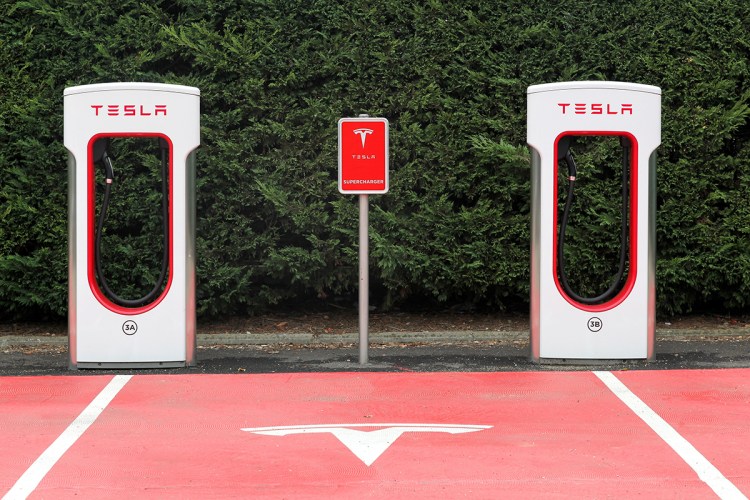Reports this week about Tesla working on autonomous truck technology reminded me that Hollywood is sometimes a good indicator of real-world innovations.
We all know that the movie Minority Report was remarkably prescient about many things — chip implants, predictive AI (there’s an irony), and augmented reality. In this year’s Logan, it wasn’t exactly difficult to predict what will likely happen in 2029. Remember the scene with autonomous trucks rolling down the highway? Well, that could happen sooner than you think.
The report hinted at an autonomous truck technology test in Nevada as early as next month. Tesla reps apparently met with the Nevada Department of Motor Vehicles (DMV) to discuss how it might work, even if they said nothing publicly about a metal-clawed mutant.
What do we know for sure? Most of the discussions about autonomous transportation these days revolve around the need to implement infrastructure changes (stoplights connecting to the dashboard), build dedicated roads, test for safety, and hammer out legislation, all of which is a bit ho-hum. What’s more interesting is the potential for cost savings. The meetings hinted at the idea of platooning, which Peloton Tech has already shown can lead to a 7 percent savings in fuel. Essentially, a lead truck sets the pace and helps reduce wind for the follow trucks.
June 5th: The AI Audit in NYC
Join us next week in NYC to engage with top executive leaders, delving into strategies for auditing AI models to ensure fairness, optimal performance, and ethical compliance across diverse organizations. Secure your attendance for this exclusive invite-only event.
If a Tesla autonomous truck becomes a reality at some point, there will also be several safety benefits. Accidents involving long-haul trucks — including the one that resulted in a fatal crash with a Tesla Model S sedan in 2016 — are more common than anyone would like. Driver fatigue is a major issue, which is why there are so many laws about how long a driver can sit behind the wheel. A driverless truck? It could drive all day and all night, seven days a week. There are no concerns about fatigue. If anything, with a dedicated road for trucks (which exists now in part of California), there would be very few concerns about safety — as long as the technology actually works.
Here’s something else to consider. Why would a luxury electric car company be talking about self-driving trucks? It doesn’t seem to match up with Tesla’s aesthetics. True, the Tesla Model 3 is not that different from a VW Passat. Yet, trucking and luxury cars don’t exactly go hand in hand.
No, this is all about the infrastructure. Remember that the Tesla Semi will be an all-electric autonomous truck. The commercial transportation industry will be much more willing to step up to the plate and build EV charging stations at every small town in America — and a few places in between — than everyday drivers will. They might even overlook the fact that building an electric charging infrastructure is a Herculean effort on par with repaving every highway or installing Wi-Fi hotspots in every major city in the U.S.
The difficulty of making this investment has been compounded because it’s a hard sell. Charging at night is fairly affordable; charging during the day when you are running errands in San Jose is not quite the same thing. And why should drivers have to pay for the infrastructure anyway? At one Tesla charging station close to my house, I’ve never seen anyone charging. My guess is that Tesla owners tend to connect up at night in their garage. From a commercial standpoint, it makes more sense for the trucking companies to pay for (and possibly even own) the charging stations. These companies are moving cargo from one coast to another. Most EV owners want to use the stations for a 30-minute commute. No matter what happens, even if you go on a long vacation, the idea of paying out enormous sums to make sure there’s a charging station in every town seems ludicrous. Having the trucking industry build these stations, on the other hand, seems like it could become part of a smart business plan.
So, who knows. Tesla certainly has loftier ambitions than selling a small EV to the masses. In fact, it seems Tesla has its eye on becoming a global transportation and electric power company. Combine the safety and cost savings of driverless trucks with the need for massive EV infrastructure advancements, and it just might work.

